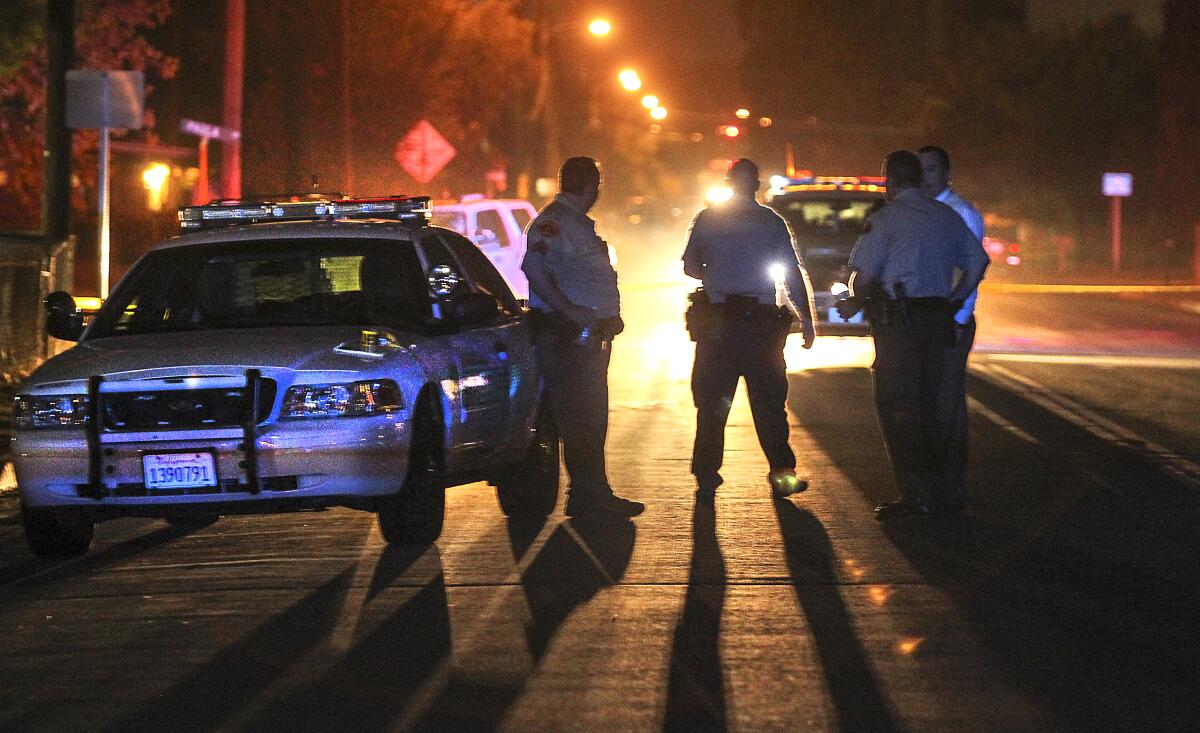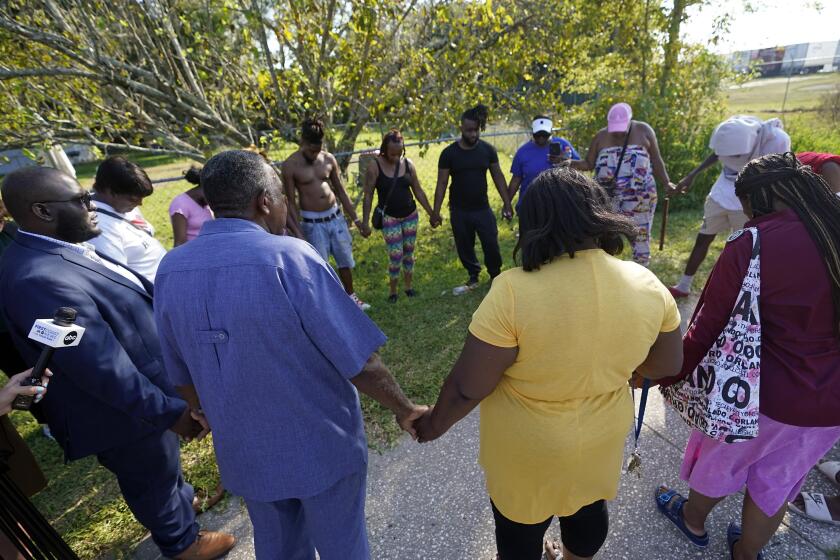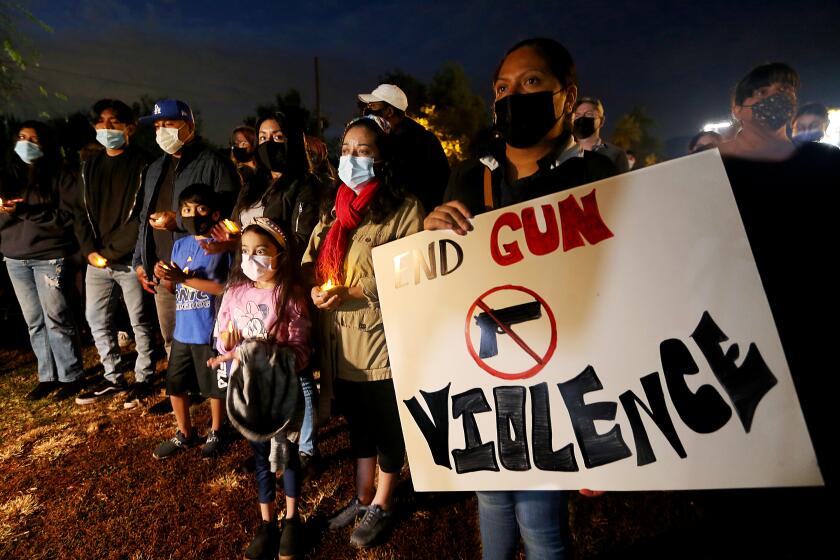My son was killed with a gun. Like too many California parents, I don’t know who did it

- Share via
Like a lot of parents, I’ve carried a picture of my son everywhere I go for many years. Unlike a lot of them, I have a child who never ages: My son George was shot and killed on July 17, 1996.
My photos of my son remind me of the days before I had to tell my grandson Gabriel, on what happened to be his 6th birthday, that his father had died. The scream I heard on the other end of the phone is one I wouldn’t wish on my enemies.
Though I turned my pain into purpose as the president of the anti-gun-violence group Brady California, I trudge through every day with unanswered questions, one of which echoes the loudest: Who killed my son? That’s because my son’s killer has never been brought to justice.
Not knowing who killed George is unfathomably difficult but not unusual. California’s statewide case clearance rate for homicides has been near or under 65% for the last decade. That means more than a third of the state’s killings go unsolved, leaving families and communities to bury people they love without ever knowing who committed the crime. And many California cities and counties with disproportionately high gun violence rates have homicide clearance rates even lower than the state’s underwhelming average.
This country is exactly the place for hateful, murderous, suicidal gun violence, because this is the place for millions upon millions of guns and the bizarre American delusion that the more of them we have, the safer and freer we are.
Closure is restorative, healing our souls and communities. Knowing the full story of a killing can break cycles of violence and save lives in the process. But I and thousands of mothers, fathers and families in the Black and brown communities most affected by gun violence are denied that knowledge.
I lead the San Francisco chapter of Mothers in Charge, an organization of mothers, grandmothers, wives, sisters, girlfriends and other women who lost loved ones to senseless gun violence. Most of our members’ cases remain unsolved. My friend Paula Dix, who leads the L.A. chapter of the group, lost her only son to a fatal shooting that remains unsolved 14 years later.
These unsolved cases perpetuate a vicious cycle of fear, violence and hopelessness. The perceived disinterest in tracking down a loved one’s killer erodes trust in police. It may even lead some people to arm themselves, despite the risks of having a gun, because they feel the authorities can’t or won’t protect them.
Ad campaigns made smoking uncool. The gun violence epidemic deserves the same treatment.
When this happens to one family, it’s a tragedy. When it’s amplified to an entire community touched by gun violence, it becomes a crisis. And Black Californians are feeling the weight of this crisis more than most: Research consistently shows that when a victim of gun violence is Black, cases are even less likely to be solved.
I’m thankful for Gov. Gavin Newsom’s recent attention to this issue in announcing rewards for unsolved murders throughout the state. But we can go much further with legislation to ensure that fewer families know this pain.
Last week, I traveled to Sacramento with George’s picture in my hands to advocate for L.A.-area Assemblymember Mike Gipson’s bill to provide more transparency and justice for survivors like me. Assembly Bill 2913 would create a process for family members to request reviews of case files in unsolved homicides. Families deserve fresh reinvestigations of these so-called cold cases.
If we learn who pulled the trigger in more of these crimes, we can work backward through the lifespan of the firearms involved. We can seek accountability from gun sellers, push irresponsible dealers out of business and stanch the flow of illegal weapons into communities. And with restored trust in our government and justice systems, we can employ community violence intervention programs to bring us closer to a future free from gun violence.
By closing more gun homicide cases, we can make law enforcement part of the healing process, break the cycles killing the people we love and have more of the peace we deserve.
Mattie Scott is the president of Brady California and the founder of Healing 4 Our Families & Our Nation.
More to Read
A cure for the common opinion
Get thought-provoking perspectives with our weekly newsletter.
You may occasionally receive promotional content from the Los Angeles Times.











